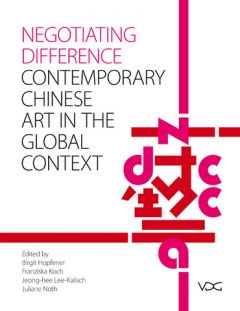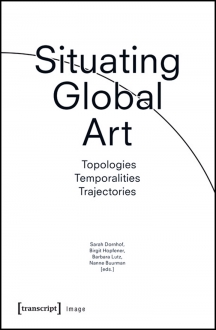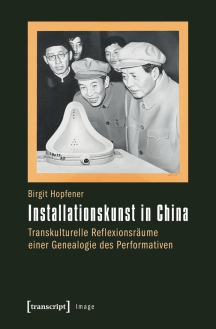
Birgit Hopfener
Associate Professor (on sabbatical 2023-24)
| Degrees: | M.A. and Dr. phil (Freie Universität Berlin) |
| Phone: | 613-520-2600 x 5045 |
| Email: | birgit.hopfener@carleton.ca |
| Office: | ICSLAC 201L SP |
Birgit Hopfener is Associate Professor of Art History at Carleton University in Ottawa. She is also cross-appointed to the Institute for Comparative Studies in Literature, Art and Culture (ICSLAC) where she currently holds the Ruth and Mark Phillips Professorship.
Her research and teaching is situated in the field of critical global art history with a regional expertise in Chinese art. At Carleton she teaches courses on Chinese art, contemporary art in a global framework and culture theory. Her criticality has been shaped at the disciplinary interstices of art history, cultural theory, image studies (Bildwissenschaft) and Sinology, through engagements with different languages (German, English and Chinese) and different academic systems in Canada, China, Germany and Switzerland.
In her current research the questions “what shapes contemporary art in a global framework?” and “what other genealogies of art constitute contemporary art?” are the starting points to examine what multiple and transculturally entangled historiographies and epistemologies constitute art, and are operative through art’s various agents, institutions and concepts. She is particularly interested in how certain temporal assumptions (temporal regimes and historiographical models) generate and govern worlds, shape art, knowledges, subjects and disciplines respectively.



Supported by a SSHRC Insight Development Grant her current book project takes art historiographic works by Qiu Zhijie, Li Ran and Liu Ding as the starting point to shed light on transcultural contemporary art historiographies through the lens of contemporary Chinese artists. She seeks to uncover how art’s meaning and status shift and unfold according to complex and dynamic cultural, historiographic and (geo-)political relationalities and by attending to the cultural multiplicity of conceptual heritages of history writing traditions and their relations to certain concepts of art, and ways of knowing.
In the context of the Ruth and Mark Phillips professorship she is currently co-editing together with Karin Zitzewitz (Michigan State University) a special edition for 21:Inquries entitled Towards a multi-temporal pluriverse of art. Decolonizing universalized historiographic and temporal frameworks.
Her first monograph Installationskunst in China. Transkulturelle Reflexionsräume einer Genealogie des Performativen, 2013 (Installation Art in China. Transcultural Spaces Reflecting a Genealogy of the Performative) adopts a bottom-up perspective on the global and offers new insights into how installation art in China had been constituted through regionally specific yet transculturally entangled narratives and aesthetic idioms of art. In so doing the book seeks to provincialize the universalized Euro-American aesthetic narrative of installation art as challenging modernist medium specificity, conceptualize cultural difference as performatively negotiated, and help create a critical awareness of the transcultural complexity of contemporary art.
Birgit Hopfener is the co-editor of Negotiating Difference: Chinese Contemporary Art in the Global Context(2012) and Situating Global Art. Topologies – Temporalities – Trajectories (2017).
Before coming to Carleton University, Hopfener taught at Freie Universität Berlin, Heidelberg Universität, Universität der Künste Berlin, Universität Zürich and Universität Duisburg-Essen.
In 2018 she co-initiated the international network TrACE (Transnational and Transcultural Arts and Culture Exchange), an international and intergenerational network of researchers working in transnational and transcultural studies at Carleton, Heidelberg University, Concordia University and the University of the Arts London. TrACE won the Social Innovation Grant from the Trans-Atlantic Platform for the Social Sciences and Humanities for the collaborative research project and transnational platform “Worlding Public Cultures: The Arts and Social Innovation.” https://www.worldingcultures.org
At Carleton, she is co-director of the Centre for Transnational Analysis (CTCA) https://carleton.ca/ctca/
She serves on the editorial boards of the journals: Art Journal, 21: Inquiries into Art, History and the Visual, Journal of Contemporary Chinese Art and is a member of the editorial advisory board of ASAP Journal.